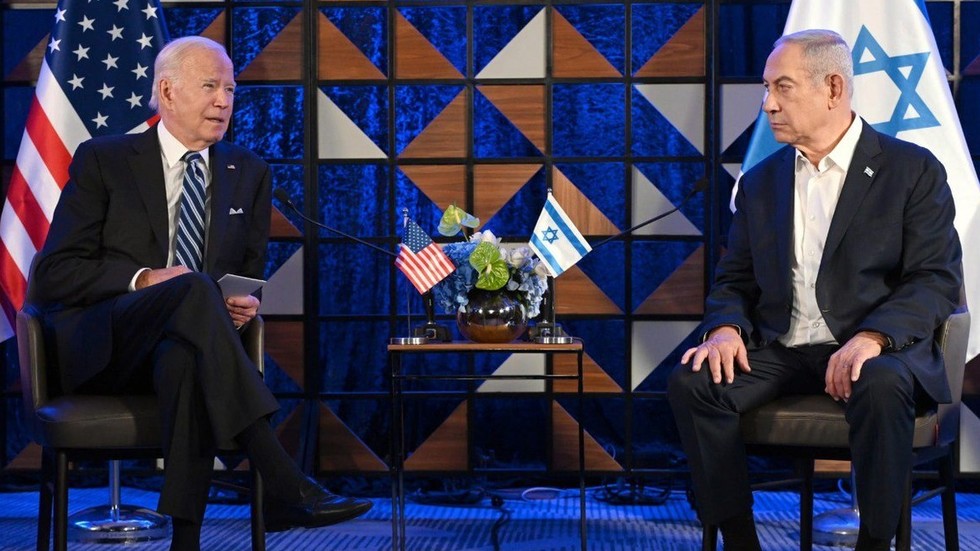In a recent conversation between Israeli Prime Minister Benjamin Netanyahu and U.S. President Joe Biden, Netanyahu conveyed his intention to restrict military responses against Iran to only targeting military installations. This dialogue took place following a significant escalation in tensions, especially after Iran launched over 180 missiles at Israel as retaliation for various Israeli attacks against key figures in Iranian-backed organizations. The attacks on Ismail Haniyeh, the leader of Hamas, and Hassan Nasrallah of Hezbollah were cited as primary motivations behind this Iranian missile attack. While Netanyahu has affirmed his plans to strike back, he is also under pressure from the U.S. administration, which has urged him to avoid hitting critical civilian infrastructure, namely oil and nuclear sites, in Iran.
The context surrounding these developments reveals a complex geopolitical landscape. In response to Netanyahu’s stated aims, President Biden’s administration has been actively trying to manage the situation, advising restraint. The Biden administration has offered a compensation package to Israel in exchange for its agreement to refrain from more destructive attacks. This reflects a careful balancing act by the U.S. government, which is keen on avoiding further escalation that could lead to wider conflict in the region, particularly in light of the ongoing tensions surrounding Iran’s nuclear ambitions.
During the phone call, sources indicated that Netanyahu exhibited a slightly more moderated tone, which seemed to reassure Biden enough for him to authorize the deployment of advanced U.S. military assets to Israel, specifically a THAAD anti-ballistic missile system along with a contingent of American military personnel. This action underscores the U.S.’s strategic commitment to Israeli security despite the rising tensions. Additionally, this deployment could be interpreted as a signal of U.S. support, providing both a deterrent against Iranian retaliation and an assurance to the Israeli public regarding their defense preparedness amid threats.
Insights from Israeli analysts suggest that the timing of Israel’s potential military actions is also influenced by the upcoming U.S. presidential elections, particularly as the current administration weighs its strategies against Iranian developments. There looms a concern about Kamala Harris, the potential Democratic candidate, who may adopt a different approach towards Iran, particularly regarding the nuclear deal. Netanyahu’s team seems to believe that the election outcome could steer the U.S. back toward a framework of engagement with Iran, prompting them to act decisively now to disrupt any revival of nuclear negotiations.
The election of Masoud Pezeshkian as Iran’s new president adds to this urgency perceived by Netanyahu’s government. An individual with reformist leanings, Pezeshkian could potentially facilitate the revival of the 2015 nuclear agreement if he aligns with the principles of a future Democrat-led U.S. administration. This prospect is alarming for Israeli strategists who view any renewal of the nuclear deal as detrimental to their security interests in the region. Therefore, they perceive striking Iran now—before diplomatic avenues are restored—as a preemptive measure to curtail Tehran’s advancements.
With these layered dynamics, the Israeli government is concerned about maintaining its strategic interests while adhering to U.S. calls for restraint. The interactions between Netanyahu’s government and Biden’s administration illustrate the fragility of the current situation and the potential for further military engagement. As both nations navigate their security and diplomatic objectives, the debate over how best to confront Iran remains pivotal. Ultimately, Israel’s approach, predicted to unfold in the near term, highlights the tense interplay of military strategy, electoral politics, and the overarching goal of regional stability amidst the evolving Iranian threat.

